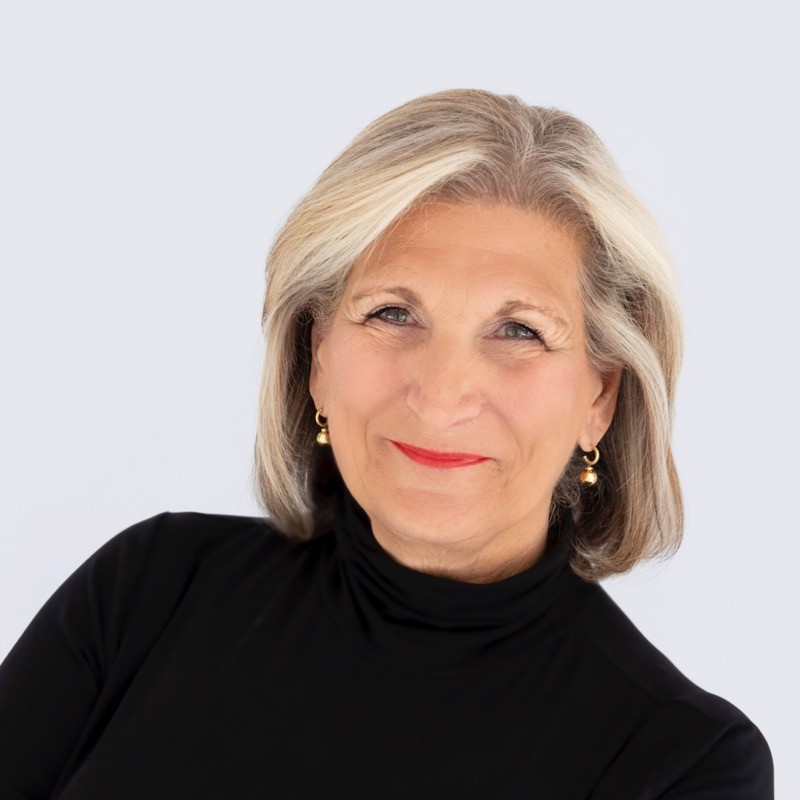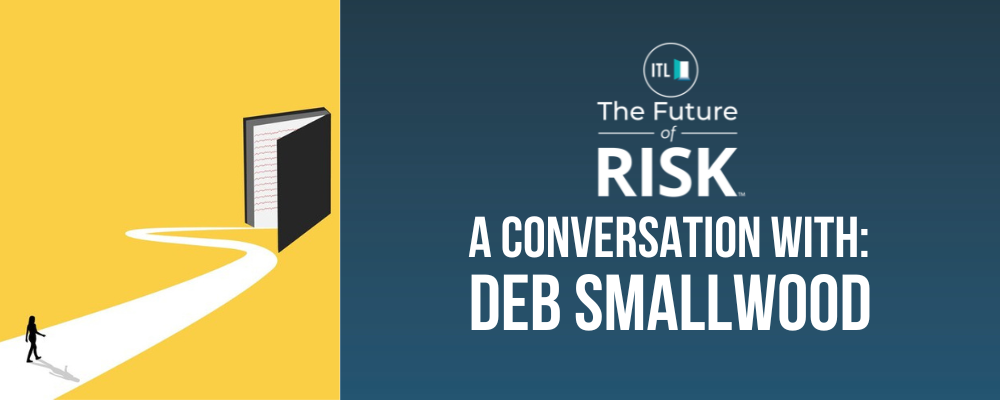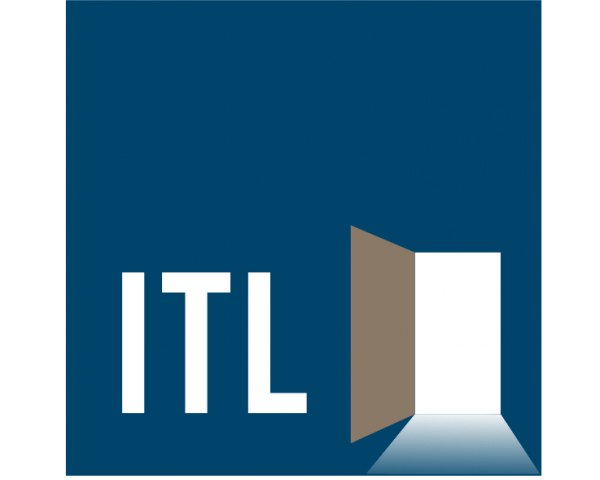 |
Deb Smallwood is widely recognized as an industry thought leader who is known for her expertise in helping companies rethink the traditional business of insurance and position for success in the changing insurance world. For over 30 years, she has helped customers understand how to leverage technologies, shift strategies and make informed strategic investment decisions. She has worked with hundreds of insurers and vendors, enabling them to advance strategies enabled by technologies. Prior to launching Strategy Meets Action, Smallwood held a variety of leadership roles developing strategic road maps and executing and deploying transformational projects. Her roles included VP of the insurance practice at CEB TowerGroup, chief transformation officer at Insurance Company of the West, partner at KPMG’s information risk management practice, and head of commercial lines application development and maintenance at Liberty Mutual. |
Paul Carroll
Perhaps you could start us off by describing your personal story arc, to set us up for a discussion of where the industry can go from here in terms of attracting, nurturing and promoting diverse talent.
Deb Smallwood
For the past 45 years in the industry, I held a variety of leadership positions; CIO, chief transformation officer, partner at KPMG and my last roles as the CEO and founder of Strategy Meets Action, always in ground-breaking roles as a woman executive at the intersection of business and technology transformation. Today, I have launched a book project and platform to empower women to unlock their infinite potential. My initial focus is partnering and collaborating with the women leaders and companies in insurance.
So my focus on where and how the industry can propel forward is a continuation of the past 45 years’ evolution, but at an accelerated pace.
I can still picture that first day at an insurance company in 1978, I was 23 years old. As I walked into the office, all I saw were rows of desks with women, while the offices were filled with men. I had never seen anything like that. There were no women in C-Suite roles and a few women leaders in the operations, back office and HR.
If you fast forward to today, women have made visible and significant progress. Across our industry, women have elevated to every single C-suite, leadership and executive role within an insurance company: CEO, CFO, COO, CIO, heads of underwriting, claims and legal and in the new roles of data, innovation, strategy, customer experience and digital transformation. Women have proven they are both strategic and operational, with the ability to execute and deliver.
The glass ceiling has been broken in our industry. This is inviting women to join insurance. But the numbers of women in these positions are relatively small. Over 60% of the professionals in insurance are women. But only 18% of C-suite roles in the industry are filled by women, and only 3% by women of color. So we hire plenty of women, but they are either leaving or not advancing in their careers.
One may suggest that the culture and the rules of engagement are traditional and have not evolved in line or at pace with changes in society that could support greater diversity in the C-suite.
Insurance industry is financially strong and continues to grow and expand. There is a healthy ecosystem. So there isn’t a compelling economic or financial reason to change culture, or even to innovate. But I think insurance companies will have to change, given the world we live in today. Many external factors and mega trends are forcing diversity, equity and inclusion [DEI] and innovation.
I also believe AI will take the industry by storm and require radical innovation that we haven’t seen since the shift away from paper at the turn of the century and the shift to predictive model pricing once Progressive showed the way. I believe AI will be a new gateway to attract and retain talent, especially women.
Paul Carroll
People were telling me all the way back in the 1980s that AI was going to change everything, and I knew it wouldn’t, and it didn't. Lately, I've become much more optimistic. I’m curious to hear more about how you think AI is going to be the next paradigm shift.
Deb Smallwood
AI capabilities has been evolving and expanding for some time and used across insurance in pockets, but as you state – with slow adoption and not transformative. What has taken the world and insurance by storm is generative AI. This AI offers maybe the first time since the telephone that everyone can play with a breakthrough technology. People are playing with it, using it, and it is elevating people’s thinking and generating new capabilities. It’s open source. It’s free. Everyone can explore it and experience it.
Many insurers are buckling down, just like they did with new opportunities with social media, mobile technology and even the cloud. They are saying, let’s take this slowly so we can understand the risk and understand the potential impact to us, our policyholders and our ecosystem. Many are creating labs with a small, controlled group to test different use cases. Many are focused on the risks, not the opportunity to innovate and transform all dimensions of the business of insurance. I would suggest we need both lenses.
But the power of this AI technology is astounding. Let’s take a call center use case. Reps need to use and access multiple systems, from call center tech, to policy admin systems and multiple billing systems just to handle a query. They also need to access in real time scripts, procedures and rules. For the past 20 years, we've been unsuccessfully trying to resolve this complexity by integrating and moving data and so forth.
What AI and the suite of technologies can offer is a new, intelligent layer that can not only script talk tracks in real time based on the conversation but can document the conversation in real time and retrieve and interpret structured and unstructured data, images and videos from the various systems, as needed. Generative AI is going to go into those masses of data stores and pull out what the call center rep needs at that moment. Sure, this will require a different type of integration but, to me, is a quantum leap with intelligence augmenting and assisting the rep to new levels of customer experience and operational excellence.
Paul Carroll
Oh, agreed.
Deb Smallwood
Yeah, seeing and hearing what AI could do in call centers made me go, “Oh, wow!”
Paul Carroll
So how does AI disrupt things enough that it feeds into this diversity issue and creates an opportunity?
Deb Smallwood
I am very excited about the suite of AI technologies, as it creates new roles and new jobs. We can see this is already happening. What we have to do is inspire all, especially women, to stand up and raise their hands for these new types of projects. This is a new pathway to leadership and technical positions.
As I talk, interview and collaborate with women leaders for my book project, the conversations have renewed focus on how we can elevate the number of women in leadership positions. Current practices on hiring, promoting, merit increases and new opportunities are still out of balance and not working effectively in our industry. There is no transparency and accountability for really making a difference through DEI programs. Women deciding not to pursue C-suite positions or leaving insurance because of the all-male leadership layer is real. This should not be a surprise to anyone.
So this tells me that the culture is still rooted in generational traditions. Board of director levels are at 80% male, and 70% of board positions are filled through networking, which perpetuates the lack of DEI at the most senior level of companies.
Insurance companies all have DEI programs, and I would challenge that it is a check-the-box activity. There is little movement and few positive outcomes from these programs. The needle is not moving at the pace we need it to. I believe if there is a cultural change for true diversity, inclusion and equity, it needs to start at the board and C-suite levels, with compensation tied to DEI outcomes.
This is where my book comes in. As I open up the conversations with women executives, I am learning more about the true state of the industry as it relates to women in leadership beyond the numbers. From the years when I was pushing up and through the glass ceiling, things are different. As one female CEO told me, the baby boomer generation did not have a choice to leave companies, for a variety of reasons. Today, as this executive was moving up the career ladder, she always felt empowered to make a choice to leave if she felt the company wasn’t the right fit culturally for her or wasn’t providing the right opportunities. With the younger generations moving between companies every three to five years, hybrid work environments and the expanding insurance ecosystem, there are many options. Right?
Insurance companies really have to embrace this diversity and inclusive cultural change, and I believe linking it to AI is an option. I just read that IBM is going to train 2 million people from diverse backgrounds over the next two years on AI. They're going to train 2 million people! Is insurance doing mass training? Is the insurance industry going into local communities and schools or going after women's groups and teaching them about insurance and AI?
Paul Carroll
You spark a thought about AI and diversity. People will do these AI models and realize, oh, we trained them all using the perspective of white men. That doesn't work so well. When IBM had this great line about how they were sending Watson to medical school, after beating the greatest Jeopardy! champions, it turned out IBM was sending it to medical school on the Upper East Side of Manhattan, through a deal with Sloan Kettering. But people who are very well off don't have the same health issues or resources as others not so well off. You can't exactly take a model based on rich New Yorkers and use it in India or some other developing economy.
But if you have a successful industry like insurance, how do you say, you have to change a lot of things about how you're recruiting and promoting?
Deb Smallwood
Great question. Change is hard when you’re successful. But I think insurance companies will have to change, given the world we live in today. Executives need to acknowledge the current recruiting and promoting practices are not yielding the results expected from society’s expectations for diversity, equity and inclusion. As I talk to women leaders in insurance, and hear stories and experiences, there are words not being spoken and actions not being taken. Therefore, there is a reality that many executives are not even aware of. They don’t believe there are pockets of discrimination within their companies.
Paul Carroll
I'm sure they don't.
I went through some family records recently because my 93-year-old mother died in June, and I was reminded that my father's mother was the executive assistant to the CEO of Quaker Oats back in the early 1920s. That was basically the highest role a woman could have in a corporation in those days. When she married my grandfather, she had to quit because the thinking was that a married woman didn’t need to have a job and should make way for a single woman. That seems crazy.
Deb Smallwood
This is an amazing family story. That was so true. I remind myself that women have only been allowed to vote for a little over 100 years, right? So yes, progress is being made from when I started in 1978, but not fast enough for today’s world.
Paul Carroll
Projecting out a bit, where do you see hope?
Deb Smallwood
My hope is more women will continue to fill board level/C-Suite roles and stay in our industry. However, change will be required to keep the pipeline of young talent from shrinking. I don’t know if our industry will change fast enough. Fingers crossed. And as I partner and collaborate with the women in insurance and beyond with my book and platform, I hope I can continue to be a positive influence for women leadership and diversity in insurance.
Paul Carroll
Thanks, Deb. This was a great conversation.






